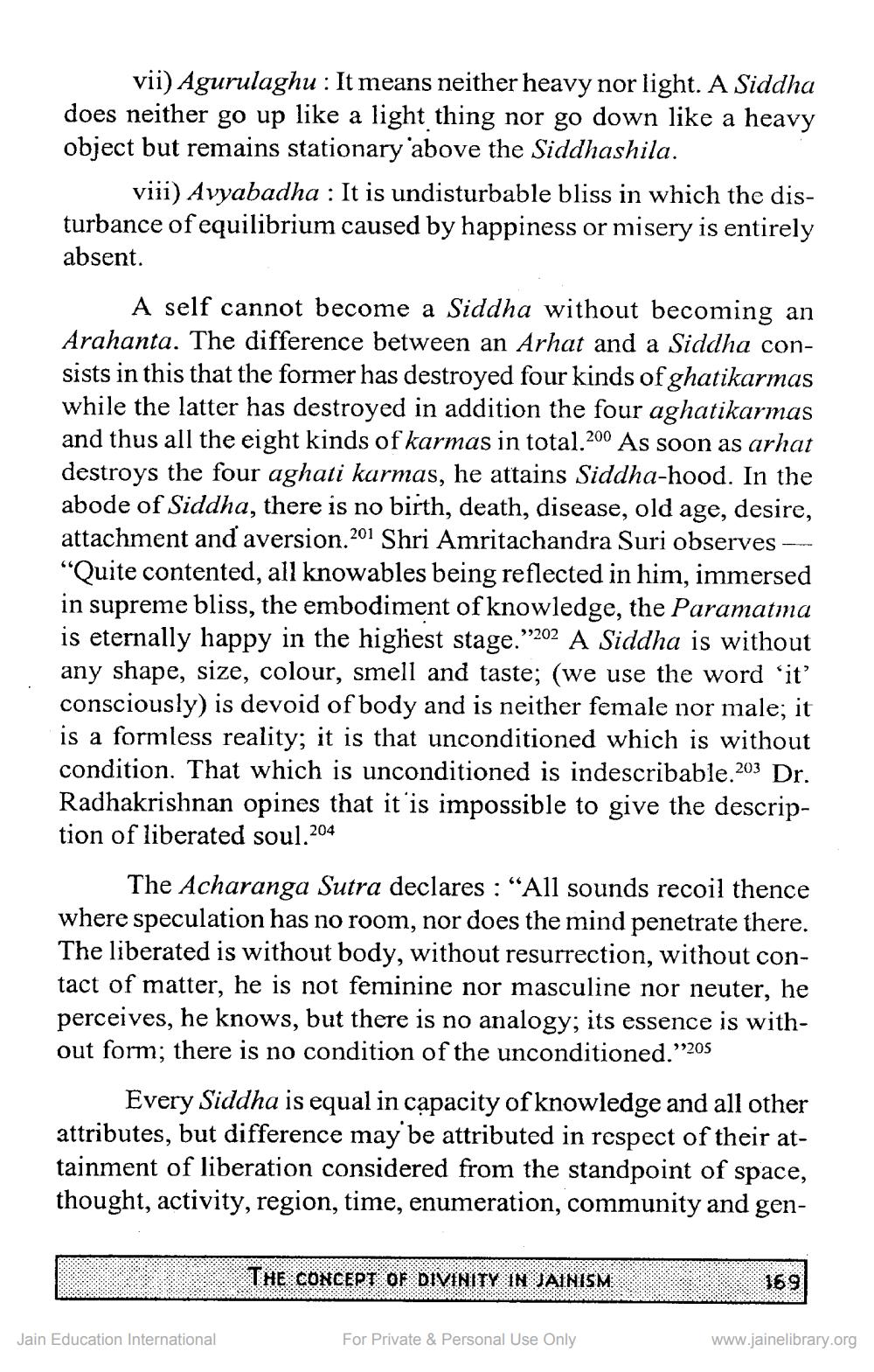________________
vii) Agurulaghu: It means neither heavy nor light. A Siddha does neither go up like a light thing nor go down like a heavy object but remains stationary above the Siddhashila.
viii) Avyabadha : It is undisturbable bliss in which the disturbance of equilibrium caused by happiness or misery is entirely absent.
A self cannot become a Siddha without becoming an Arahanta. The difference between an Arhat and a Siddha consists in this that the former has destroyed four kinds of ghatikarmas while the latter has destroyed in addition the four aghatikarmas and thus all the eight kinds of karmas in total.200 As soon as arhat destroys the four aghati karmas, he attains Siddha-hood. In the abode of Siddha, there is no birth, death, disease, old age, desire, attachment and aversion.201 Shri Amritachandra Suri observes "Quite contented, all knowables being reflected in him, immersed in supreme bliss, the embodiment of knowledge, the Paramatma is eternally happy in the highest stage.' "202 A Siddha is without any shape, size, colour, smell and taste; (we use the word 'it' consciously) is devoid of body and is neither female nor male; it is a formless reality; it is that unconditioned which is without condition. That which is unconditioned is indescribable.203 Dr. Radhakrishnan opines that it is impossible to give the description of liberated soul.204
The Acharanga Sutra declares: "All sounds recoil thence where speculation has no room, nor does the mind penetrate there. The liberated is without body, without resurrection, without contact of matter, he is not feminine nor masculine nor neuter, he perceives, he knows, but there is no analogy; its essence is without form; there is no condition of the unconditioned."205
Every Siddha is equal in capacity of knowledge and all other attributes, but difference may be attributed in respect of their attainment of liberation considered from the standpoint of space, thought, activity, region, time, enumeration, community and gen
Jain Education International
THE CONCEPT OF DIVINITY IN JAINISM
For Private & Personal Use Only
169
www.jainelibrary.org




